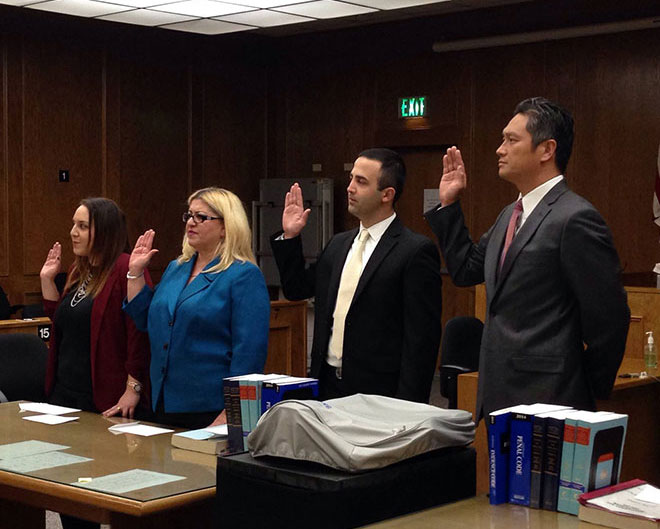California Accredited Law Schools (CALS) are accredited through the Committee of Bar Examiners of the State Bar of California.
In recognition of the integrity of our educational programs, the Committee of Bar Examiners of the State Bar of California grants the California Accredited Law Schools the authority to operate law schools and grant law degrees. To become accredited, a law school must establish that its paramount objective is to provide a sound legal education.
An accredited law school is also one that meets specific standards set by the Committee of Bar Examiners of the State Bar of California.
Graduates from California accredited law schools are eligible to sit for the California Bar Examination.
Information related to admission to practice in California can be found at the State Bar of California website. The State Bar of California seal on this page can be clicked to access that site.
Additional information regarding admission to practice in California may also be obtained from the Committee of Bar Examiners, 180 Howard Street, San Francisco, CA 94105-I639.

CALS are subject to rules and regulations that, in many ways, are similar to those that apply to ABA approved law schools. The State Bar of California’s Accredited Law School Rules, applicable to CALS effective January 1, 2022, can be reviewed by clicking the below link.
Equality of opportunity, as required under State and Federal law, is provided by CALS in admission and retention of students, and in the hiring, retention, and promotion of faculty and staff.
Study at, or graduation from a CALS school may not qualify a student to take the Bar Examination or be admitted to practice law in jurisdictions other than California. A student who intends to seek admission to practice law outside of California should contact the admitting authority in that jurisdiction for information regarding its education and admission requirements.
Details about each state’s requirements can be found in the publication titled, “Comprehensive Guide to Bar Admission Requirements,” compiled by the National Conference of Bar Examiners, or by contacting the admitting authority of each state. Please keep in mind that states may change their requirements from year to year.
Opportunities outside of California include: (1) licensure in select states depending on their rules (e.g., North Carolina and Wisconsin allow sitting for their bar immediately after getting licensed in California; or satisfying additional years of practice requirements for certain other states); (2) practice in select federal district courts; (3) practice in specialty court systems (e.g., immigration court, tax court); (4) in-house counsel (depending on the rules of the jurisdiction and company); and (5) remote representation of California clients.